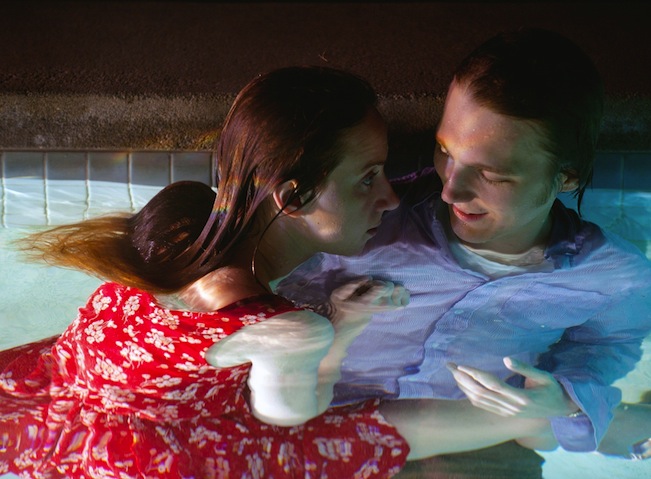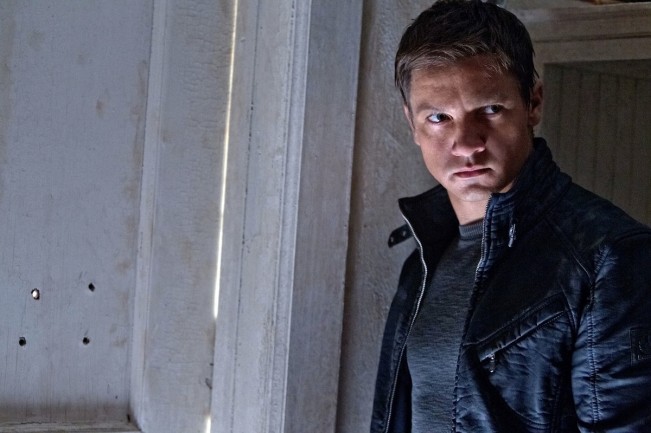

By Ray Pride Pride@moviecitynews.com
Pride’s Friday 5, August 10, 2012
1. Celeste and Jesse Forever
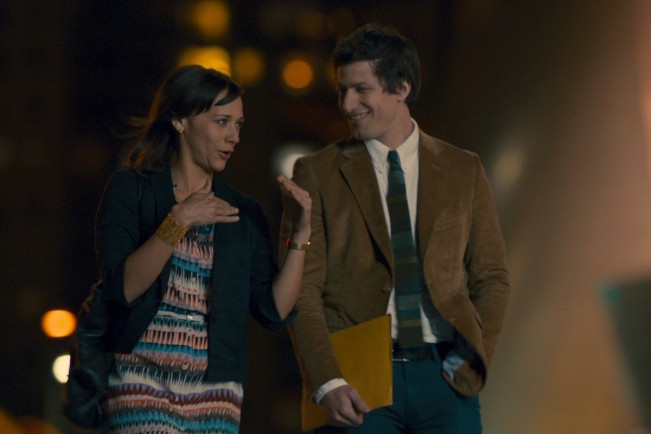 Sweet, sad, sarcastic, moony, melancholy and mostly marvelous, Celeste and Jesse Forever is a little bit of a lot of things, but it’s mostly its own romantic beast, and it’s a splendid starring role for co-writer Rashida Jones, as well as a co-starring role for Andy Samberg of weight and charm that I would never have expected. The behaviors are as recognizable from people you know as from movies that have worn the idea of romantic comedy to a dull nub. Among influences Jones cites are When Harry Met Sally…,” Manhattan, Annie Hall, and Broadcast News, romances about intelligent grown-ups who sometimes do the daffiest things in the face of romance. Celeste and Jesse were high-school sweethearts, are the best of friends, but they’re also dragging their heels about a divorce that remains unexplained: he’s stalled as an artist, she’s co-owner of a trend agency and has just published a book about sham fashion, “Shitegeist.” They share juvenile private jokes, she smokes madly, tries to be on top of it all, marijuana is all over the place and there are gusts of verbal fuckery. Celeste wants to control: “She’s pretty, she looks like a young me,” she says of a woman Jesse admires. They both attempt to date, and the subjects include Chris Messina, whom Celeste cuts down with a litany of cultural descriptions the likes of which have not been heard since Woody Allen’s Alvy Singer reduced Carol Kane’s character to an eager cultural stereotype. Among the fresh genre of location-strewn Los Angeles-set romantic comedies, like Ruby Sparks, that have been shot with digital capture (both these movies with the top-of-the-line Arri Alexa camera). Skin textures can be startlingly beautiful, and the lights of a city by night dazzle sufficiently, rippling wild, that an editor may have to choose less-dazzling shots to keep from distracting from the story. Lee Toland Krieger directed. [More here.]
Sweet, sad, sarcastic, moony, melancholy and mostly marvelous, Celeste and Jesse Forever is a little bit of a lot of things, but it’s mostly its own romantic beast, and it’s a splendid starring role for co-writer Rashida Jones, as well as a co-starring role for Andy Samberg of weight and charm that I would never have expected. The behaviors are as recognizable from people you know as from movies that have worn the idea of romantic comedy to a dull nub. Among influences Jones cites are When Harry Met Sally…,” Manhattan, Annie Hall, and Broadcast News, romances about intelligent grown-ups who sometimes do the daffiest things in the face of romance. Celeste and Jesse were high-school sweethearts, are the best of friends, but they’re also dragging their heels about a divorce that remains unexplained: he’s stalled as an artist, she’s co-owner of a trend agency and has just published a book about sham fashion, “Shitegeist.” They share juvenile private jokes, she smokes madly, tries to be on top of it all, marijuana is all over the place and there are gusts of verbal fuckery. Celeste wants to control: “She’s pretty, she looks like a young me,” she says of a woman Jesse admires. They both attempt to date, and the subjects include Chris Messina, whom Celeste cuts down with a litany of cultural descriptions the likes of which have not been heard since Woody Allen’s Alvy Singer reduced Carol Kane’s character to an eager cultural stereotype. Among the fresh genre of location-strewn Los Angeles-set romantic comedies, like Ruby Sparks, that have been shot with digital capture (both these movies with the top-of-the-line Arri Alexa camera). Skin textures can be startlingly beautiful, and the lights of a city by night dazzle sufficiently, rippling wild, that an editor may have to choose less-dazzling shots to keep from distracting from the story. Lee Toland Krieger directed. [More here.]
2. Ruby Sparks
A weave of fancies, Ruby Sparks is a tart high-concept variation on modern romantic comedies, “Pygmalion” rewritten to poke holes in the modern-day-movie “manic pixie dream girl” myth. Plus, it’s directed by Jonathan Dayton and Valerie Faris, a couple, starring another couple, Paul Dano and Zoe Kazan (who also wrote the screenplay). Calvin Weir-Fields, whose name sounds a little like “Jonathan Safran Foer,” wrote a first novel at nineteen, a precocious success, a Salingeresque doorstopper called “Heartbroken Old Times.” Now he’s banked a lot from ten years of royalties, living in a clean-lined duplex home more a screenwriter’s aerie than a writer’s nook. (Its angles skew nicely to the Escheresque.) His desk is all too neat, yellow Post-its, kitchen timers, manual typewriter just so. He’s had write’s block for years: the page is as blindingly white as his home. But one day, an exercise offered up by his Elliott Gould-calm therapist (Elliott Gould) leads to him writing about an idealized woman, a girlfriend he’d hope to have, “just a normal girl, just a girl I made up.” Then, from nowhere, there she is, Ruby Sparks, calling his name from downstairs, barelegged in a blue chambray boyfriend-shirt and black-white-striped panties, barelegged and barefoot, clabbering eggs with hot sauce. (The script takes a fine note from Groundhog Day and never attempts to explain the implausible, impossible mechanics of Ruby’s manifestation. ) The storytelling is brisk, alternating charm and fear—could the story turn into Frankenstein or The Shining?—and it’s a lovely portrait of Los Angeles’ Los Feliz area as well, shot digitally with the Alexa system by Matthew Libatique (Requiem for a Dream, Iron Man, Black Swan, Josie and the Pussycats). [More here.]
3. Killer Joe
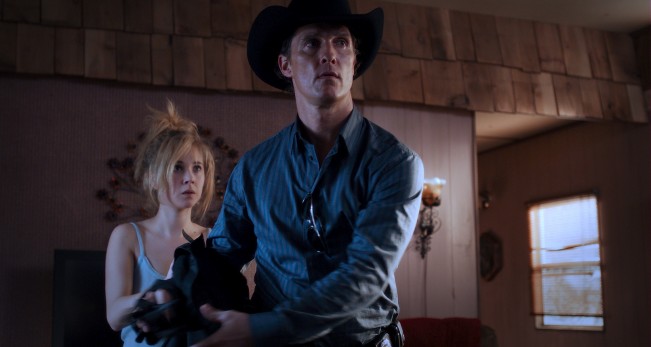 My strongest memories of Chicago storefront theater in the 1990s when Tracy Letts’ “Killer Joe” was first loosed are rude floorboards and multiplicities of dust. Talking recently in Chicago, Letts recalls the confines of the space at Evanston’s Noyes Cultural Arts Center. “There’s still a theater there called Next Theatre, but down the hall, in the same building was something called the Next Lab, the creation of Dexter Bullard. It was a classroom that had been painted black. There were about forty seats, about as many as can fit into a classroom, ringing two sides of the stage. We built the trailer inside that classroom, with two walls cutaway. So I mean, it was veryclose. People were as far away as you and I are now, to the action going on, on stage. It was a very intense experience.” [Letts on William Friedkin, ratings and more here.]
My strongest memories of Chicago storefront theater in the 1990s when Tracy Letts’ “Killer Joe” was first loosed are rude floorboards and multiplicities of dust. Talking recently in Chicago, Letts recalls the confines of the space at Evanston’s Noyes Cultural Arts Center. “There’s still a theater there called Next Theatre, but down the hall, in the same building was something called the Next Lab, the creation of Dexter Bullard. It was a classroom that had been painted black. There were about forty seats, about as many as can fit into a classroom, ringing two sides of the stage. We built the trailer inside that classroom, with two walls cutaway. So I mean, it was veryclose. People were as far away as you and I are now, to the action going on, on stage. It was a very intense experience.” [Letts on William Friedkin, ratings and more here.]
4. The Bourne Legacy
“You break it, you bought it, was ever thus.” So is this “The Bourne Necessity”? After infighting with the studio, director Paul Greengrass, screenwriter Tony Gilroy and star Matt Damon had walked away from the embers of the Bourne trilogy. How to sustain a series when there are no more Robert Ludlum books and your star is elsewhere? Cannily, cleverly, Gilroy realized that a rogue operation in the surveillance state would be one among many, many more: “Treadstone” is not singular. Enter The Bourne Legacy: rogue agent Aaron Cross (Jeremy Renner), racing to escape extermination after the sudden end of an initiative dabbling in programmable behavior and neural design of undercover agents. He can’t but run: as another figure says, “Aren’t we wired to stick our nose in, you and I?” Rachel Weisz plays one of the doctors on the project who escapes from a massacre by, wouldn’t you know, a lone gunman who wipes out a suburban lab? The setpieces of “total security awareness” have a cold thrill to them, both as evocation of the particulars of a vast surveillance state turned toward its citizens and as cautionary tale. A scene with drone operators casually making the calculations thousands of miles away to fire multiple missiles to execute the order to murder an American citizen. “Morally indefensible and absolutely necessary,” a boss says. Edward Norton, Jr. is the prime technocrat, racing from situation room to situation room to sift through the vast amounts of data being streamed into the frame, a soup and a sea of surveillance images high and low, from gas station bays to Canadian forestry satellites. “I don’t make policy”; “Nah, you just load the gun.” Banality and overkill mesh: all the more believable, and in the pulse of each moment, there’s an awful lot of first-rate action filmmaking. [More here.]
5. Searching For Sugar Man
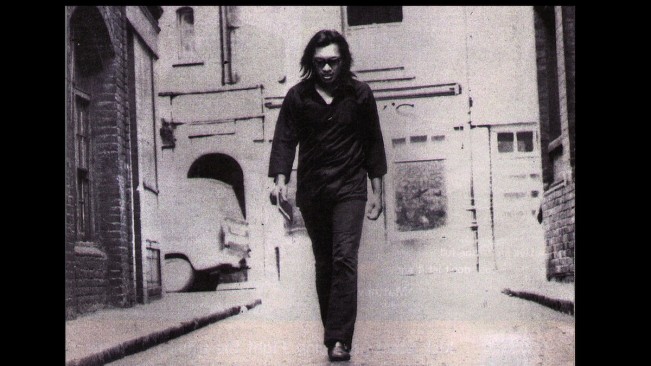 Searching For Sugar Man has a magnificent subject. Sixto Rodriguez, a Chicano man from Detroit, released two albums, in 1970 and 1972, of sweet and lovely music with earnest, demonstrative lyrics. And then, largely, silence. But, by filmmaker Malik Bendjelloul’s account, he was not only not obscure halfway across the world, his songs were anthems against the South African apartheid regime. [Some of the latter-day Rodriguez’s stream-of-consciousness from a June interview here.]
Searching For Sugar Man has a magnificent subject. Sixto Rodriguez, a Chicano man from Detroit, released two albums, in 1970 and 1972, of sweet and lovely music with earnest, demonstrative lyrics. And then, largely, silence. But, by filmmaker Malik Bendjelloul’s account, he was not only not obscure halfway across the world, his songs were anthems against the South African apartheid regime. [Some of the latter-day Rodriguez’s stream-of-consciousness from a June interview here.]









